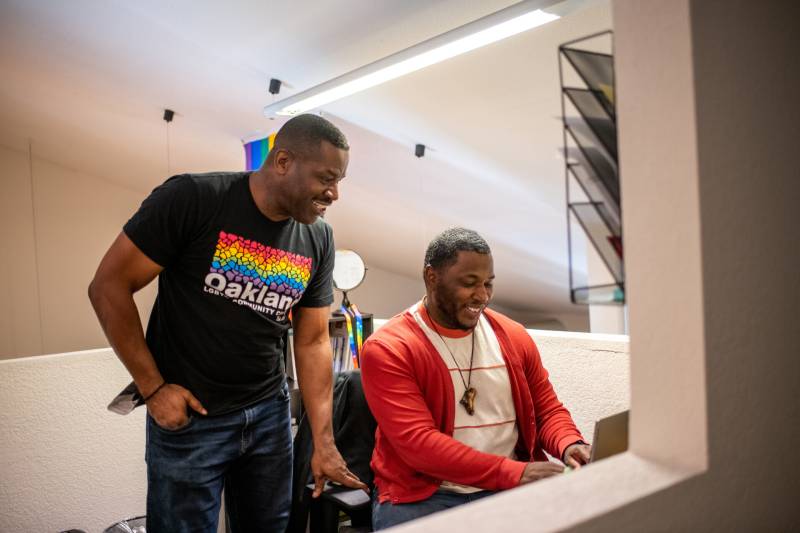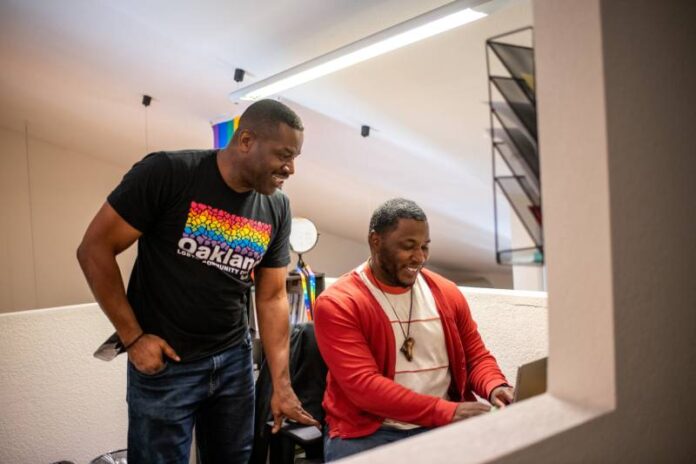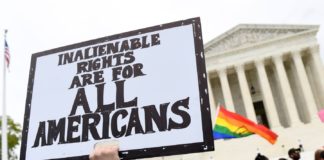In that public health messaging, how have you described MPX? There’s a conversation around it not being compared to a sexually transmitted infection — has that been helpful or harmful in the long run?
I think that the long run is not here yet. So I think we will see at this time next year what impact we’ve had.
I do believe we’re all trying to figure this thing out. The scientists are trying to figure out how this is manifesting in the way that it is. But I just think people just want to be protected, and they want to ask questions about the muscle, whether it should be shot subcutaneously or intradermal. There have been a lot of questions about that. And, “What is this vaccine?” So, similar to vaccine hesitancy that we experience with COVID, we’re seeing with people of color [that] a lot of those questions have been coming up.
Coming into a space like ours, our center serves everyone. But we are Black-founded and Black-led. And our clinic is very representative of this, the most marginalized people in our community. So when people come in, they see people like them who are able to explain what we understand so far to them, and people have been very appreciative.
I see your center’s website uses both “MPX” and “monkeypox.” How are you navigating that?
We have been saying “MPX” [pronounced “em-pox”] to people. But it is monkeypox. I know the CDC is working to change that language, or the name, but people know “monkeypox” now because it’s been out there.
But we’ve also been sort of changing the language. When we talk with people, we will say “MPX” just as a way to get away from that whole “monkeypox” language, which has also been stigmatizing to a lot of people.

A connected question is, if people feel less stigmatized, are they more likely to seek help?
Definitely. And with HIV, the whole HIV social marketing and media process was all about destigmatizing getting tested for HIV, getting treatment for HIV.
And [MPX] is new. So it’s going to take time. But we are seeing a lot of people come in who do not want to be exposed to MPX. You know, I’ve never seen this. There was no vaccine for HIV. So just to see people coming in in droves to get vaccinated — it’s new.
Folsom Street Fair is happening in San Francisco on Sunday, September 25 — which draws a lot of people and promotes a sex-positive message. How can people continue to participate while keeping in mind the risk of getting infected?
I can say that here in Oakland, I know that PrideFest was just [on September 4], and before that was Oakland’s other Pride event. And so I know thousands of people have been vaccinated working through Alameda County Department of Public Health, which has been setting up those pods throughout the city. So more people have had access to at least first-dose vaccinations.
I just think as long as people follow the guidance that is on the CDC’s website. There are other organizations, [like the] San Francisco AIDS Foundation, so many other organizations out there that are helping people to understand how to be safer. I feel our LGBTQ community has been very responsive, and they’ve been very responsible, just wanting to get vaccinated. And that is one reason you’re seeing the numbers come down.
Is there something like a playbook for how an organization responds when there is an outbreak of a virus like MPX? What are those steps and what are some of the priorities?
I really believe that counties have to include POC communities, in addition to other communities as well. Because when the outbreak happened here, the county went to — which makes sense — the Steamworks [bathhouse], which is a place that’s known for sex, where people have sex.
But what I believe is, they should have immediately prioritized people of color communities, and people who have access to those communities. It should be something that happens simultaneously, instead of a sort of reactionary approach, which resulted in lots of white gay men having access right off the bat to this vaccine, and other communities not having immediate access.
But when we reached out to the county and let them know, “Hey, what’s going on? What about us?” there was an immediate pivot. And we’ve been working in partnership with [Alameda County]. And it’s been really a great partnership.








